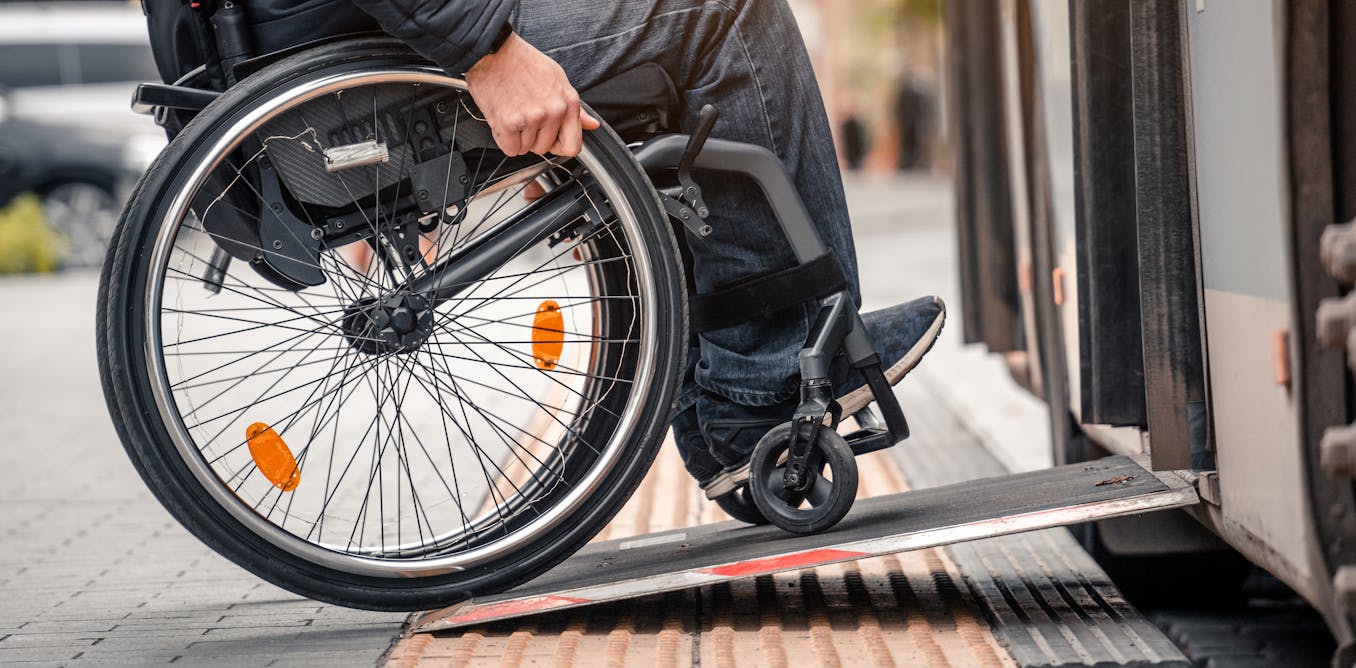The Royal Commission into Violence, Abuse, Neglect and Exploitation of People with Disability has released its final report, and in this series we explain what the Commission’s 222 recommendations mean for a more inclusive Australia.
The Disability Royal Commission’s final report included far-reaching recommendations, including the introduction of Australian Disability Rights Act and the establishment of a Minister for Disability Inclusion and a Department of Disability Equality and Inclusion.
The government says it will set up a task force and take a phased approach to remove barriers to inclusive education, open employment and accessible, adequate and safe housing.
But in three key areas, the report only barely scratches the surface of what needs to be done to make life more inclusive and fair for Australians with disability.
1. Preventive Medicine
The commission said disability rights legislation would ensure equitable access to health services, but the report failed to provide a comprehensive analysis of the overall health and wellbeing of Australians with a disability, nor did it set out a health policy reform agenda.
The Commission has received early promising proposals for disability health reform: options to strengthen preventive care, such as extending Medicare coverage to dental and oral health for people with disabilities and funding longer consultations between general practitioners and disability patients, are practical, systemic reforms that can improve the health of Australians with disability.
Similarly, suggestions for redesigning the physical environment to make people with cognitive impairment feel calm and secure were not addressed (although the value of co-design and collaborative care planning was mentioned).
International good practices are also off the agenda: last year the World Health Organisation identified 40 actions to improve health for people with disabilities, spanning policies, funding, models of care, physical infrastructure and digital technologies to improve access, participation and outcomes.
The UK’s National Health Service is working to address poor physical and mental health of people with intellectual disabilities through annual health checks.
Read more: Why we need disability rights laws, not just disability discrimination laws
2. Urgent Transport Reform
Transportation is critical to inclusion — commissioners heard shocking stories of transportation inconvenience and harassment and abuse on buses, trains and planes in countless hearings and testimony — but the report offers few practical reforms or recommendations for improvement.
The commissioners acknowledge that there are deficiencies in Australia’s disability accessible public transport standards, which relate to anti-discrimination laws and human rights obligations. But their attention to reform stops short of recommending ways to improve disability transport through law or policy.
Practical steps would have been to strengthen legislation, educate service providers about the challenges faced by disabled passengers, and quantify the waste caused by inaccessible transport.
It is important to note that transport and health are areas where state and territory governments have fallen short on their promises to provide reasonable accommodation for people with a disability. Failure to meet their obligations only increases pressure on the National Disability Insurance Scheme (NDIS), which is being forced to fund supports to make up the shortfall. Hopefully the upcoming review of the NDIS will make recommendations to better manage these boundaries.
Read more: Disability Royal Commission recommendations could improve the worst living conditions, but it’s only the start
3. Meaningful day care services
Another glaring omission in the final report is the lack of specific recommendations about the role of day programs, where people with disabilities often come together privately.
The commission heard evidence of violence suffered by disabled people in these settings, including stories of NDIS participants being sexually abused and assaulted.

Around 10,000 people spoke about their experiences of violence, abuse, neglect and exploitation. Jono Searle/AAP Images
Testimony revealed that many day programs were essentially segregated services that offered little meaningful activity or skill development. One witness said the day program her son attended was little more than “babysitting in disguise.”
“The Commissioners missed a golden opportunity to clarify what a meaningful and inclusive experience means in these contexts. The reform recommendations could help people with disabilities live full, meaningful lives in their communities, with a range of friendships, activities and relationships – a human right they share with the rest of society.”
Read more: Disability Royal Commission hears horrific stories of harm – now we must move towards repairing it
What’s next?
Decades in the making, the Disability Royal Commission was a unique opportunity to examine the realities of life for Australians with a disability. The Commission found that current policy settings are not up to par. Many of the Commission’s recommendations will improve the lives of Australians with a disability.
But when it comes to reforming the health system, improving transport links and creating meaningful social and recreational opportunities that Australians with disability rely on, the commissioner’s report appears to give the government a free pass.

